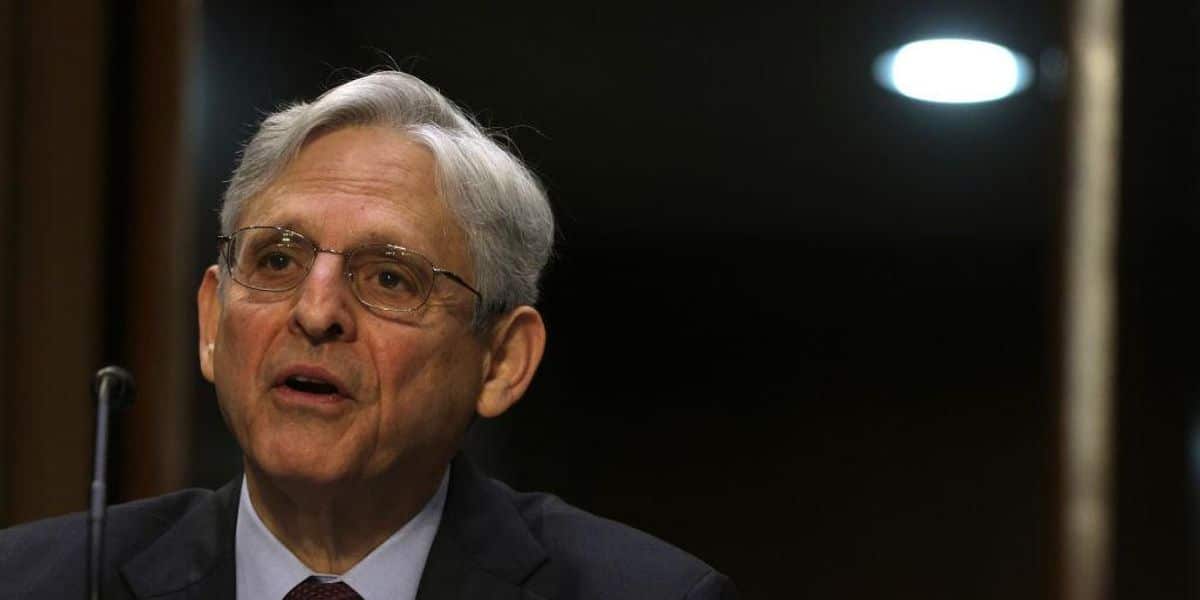Attorney General Merrick Garland continued to refuse to address questions over his refusal to appoint a Special Counsel in the Hunter Biden investigation despite new evidence tying President Joe Biden to the controversial business deals. The New York Post is reporting that President Biden agreed to cover more than $800,000 in bills of Hunter, including legal fees tied to the foreign deals. While President Biden’s denial of knowledge of Hunter’s deals have been repeatedly contradicted (including by Hunter himself), White House Press Secretary Jen Psaki declared that President Biden stands by his denials. However, she declined to explain new information showing that a key business partner in these deals visited the White House over a dozen times, including at least one meeting with then Vice President Biden.
The New York Post shows that on Jan. 17, 2019, Hunter Biden’s then-personal assistant, Katie Dodge told accountant Linda Shapero that Joe Biden was covering the legal costs. The email states “I spoke with Hunter today regarding his bills. It is my understanding that Hunt’s dad will cover these bills in the short-term as Hunter transitions in his career.”
What may be even more damaging is the the new disclosure that Hunter Biden’s business partner, Eric Schwerin, made at least 19 visits to the White House and other official locations between 2009 and 2015. Schwerin was the president of Rosemont Seneca, one of the key firms involved in the alleged influence peddling schemes.
We have previously discussed the various references to the President in these emails. Indeed, it is impossible to look into these allegations of influence peddling without repeatedly running into references to the President.
As vice president, Joe Biden flew to China on Air Force Two with Hunter Biden, who arranged for his father to meet some of his business interests. Hunter Biden’s financial interest in a Chinese-backed investment firm, BHR Partners, was registered within weeks of that 2013 trip.
There are emails of Ukrainian and other foreign clients thanking Hunter Biden for arranging meetings with his father. There are photos from dinners and meetings that tie President Biden to these figures, including a 2015 dinner with a group of Hunter Biden’s Russian and Kazakh clients.
People apparently were told to avoid directly referring to President Biden. In one email, Tony Bobulinski, then a business partner of Hunter’s, was instructed by Biden associate James Gilliar not to speak of the former veep’s connection to any transactions: “Don’t mention Joe being involved, it’s only when u [sic] are face to face, I know u [sic] know that but they are paranoid.”
Instead, the emails apparently refer to President Biden with code names such as “Celtic” or “the big guy.” In one, “the big guy” is discussed as possibly receiving a 10 percent cut on a deal with a Chinese energy firm; other emails reportedly refer to Hunter Biden paying portions of his father’s expenses and taxes.
There were other connections like an office arranged for Joe Biden by the Chinese, a letter of recommendation written by Joe Biden for a key Chinese figure’s child, and expenses paid out of joint accounts.
President Biden has long insisted that that his son did “nothing wrong.” That is obviously untrue. One can argue over whether Hunter committed any crime, but few would say that there is nothing wrong with raw influence peddling worth millions with foreign entities. The public has a legitimate reason to know whether the President or his family ran an influence peddling operation worth millions.
Given this mounting evidence, the position of Attorney General Garland has gone from dubious to ridiculous in evading the issue of a special counsel appointment. He continues to refuse to acknowledge these conflicts with the President. In a hearing yesterday, Garland again refused to address the issue, even discussing what it would take to warrant the appointment of a special counsel. There is no reason why he cannot answer such legal questions without getting into the evidence produced in Delaware.
Federal regulations allow the appointment of a special counsel when it is in the public interest and an “investigation or prosecution of that person or matter by a United States Attorney’s Office or litigating Division of the Department of Justice would present a conflict of interest for the Department or other extraordinary circumstances.”
It is hard to imagine a stronger case for the appointment of a special counsel.
Reprinted with permission from JonathanTurley.org.



